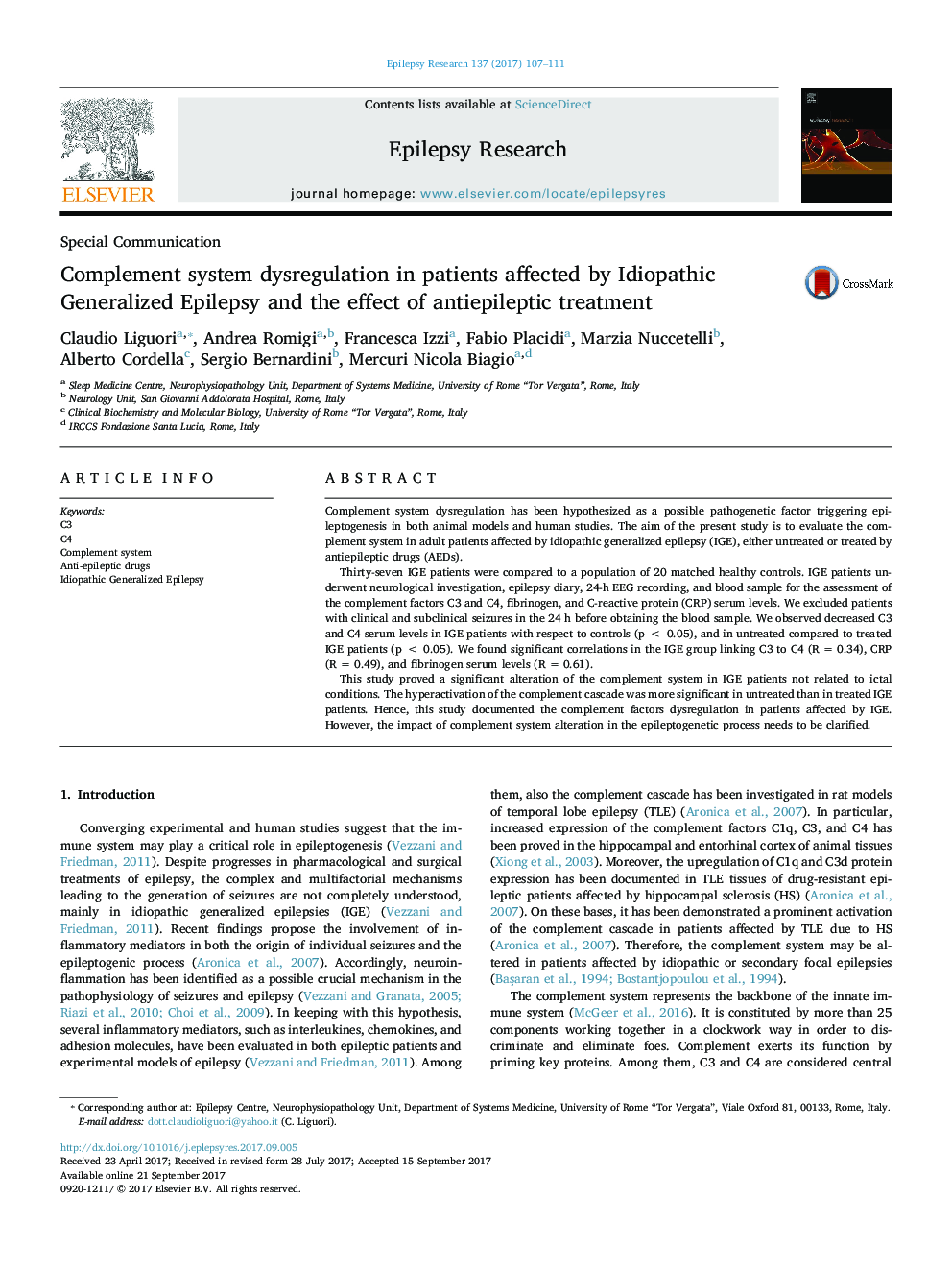| کد مقاله | کد نشریه | سال انتشار | مقاله انگلیسی | نسخه تمام متن |
|---|---|---|---|---|
| 5628664 | 1579886 | 2017 | 5 صفحه PDF | دانلود رایگان |
- Complement system dysregulation is present in Idiopathic Generalized Epilepsy.
- Complement cascade alteration may be influenced by antiepileptic drugs.
- Complement system dysregulation in IGE patients is not related to ictal conditions.
Complement system dysregulation has been hypothesized as a possible pathogenetic factor triggering epileptogenesis in both animal models and human studies. The aim of the present study is to evaluate the complement system in adult patients affected by idiopathic generalized epilepsy (IGE), either untreated or treated by antiepileptic drugs (AEDs).Thirty-seven IGE patients were compared to a population of 20 matched healthy controls. IGE patients underwent neurological investigation, epilepsy diary, 24-h EEG recording, and blood sample for the assessment of the complement factors C3 and C4, fibrinogen, and C-reactive protein (CRP) serum levels. We excluded patients with clinical and subclinical seizures in the 24 h before obtaining the blood sample. We observed decreased C3 and C4 serum levels in IGE patients with respect to controls (p < 0.05), and in untreated compared to treated IGE patients (p < 0.05). We found significant correlations in the IGE group linking C3 to C4 (R = 0.34), CRP (R = 0.49), and fibrinogen serum levels (R = 0.61).This study proved a significant alteration of the complement system in IGE patients not related to ictal conditions. The hyperactivation of the complement cascade was more significant in untreated than in treated IGE patients. Hence, this study documented the complement factors dysregulation in patients affected by IGE. However, the impact of complement system alteration in the epileptogenetic process needs to be clarified.
Journal: Epilepsy Research - Volume 137, November 2017, Pages 107-111
